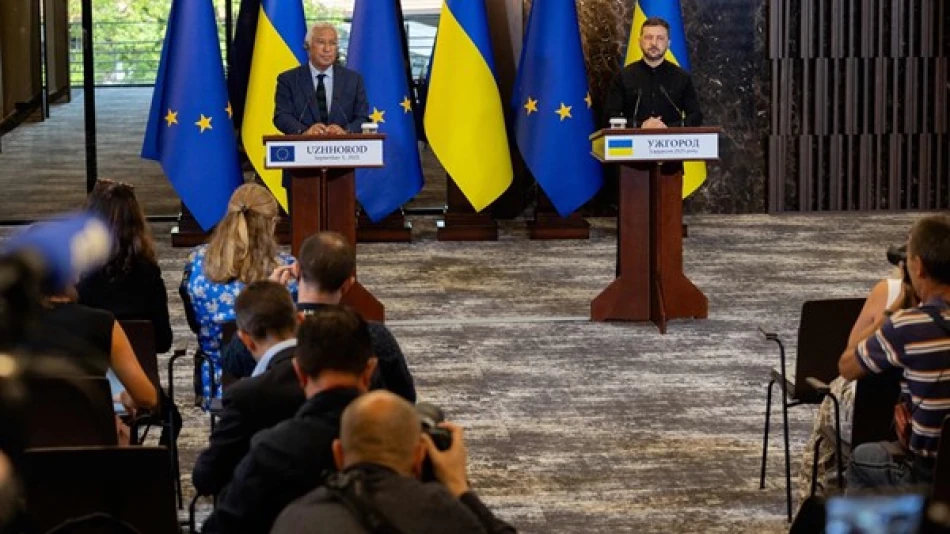
Zelensky Unveils Security Guarantees for Ukraine Amid Ongoing Conflict
Ukraine Signals Thousands of Western Troops Could Deploy as Security Guarantors
Ukrainian President Volodymyr Zelensky revealed Friday that thousands of Western soldiers may be stationed in Ukraine as part of comprehensive security guarantees from Kyiv's allies, marking a potential shift toward more direct military involvement in the conflict's aftermath. The announcement follows high-level discussions in Paris involving dozens of world leaders and a subsequent call with U.S. President Donald Trump.
The Scale of Proposed Military Presence
Speaking at a press conference with European Council President Antonio Costa in western Ukraine, Zelensky confirmed that the number of foreign military personnel would reach "thousands." While he emphasized this as a "reality," he cautioned that discussions remain premature, suggesting ongoing negotiations about the scope and timeline of such deployments.
The proposed troop presence would represent a significant escalation in Western commitment to Ukraine's long-term security, moving beyond weapons supplies and financial aid toward direct military guarantees.
Diplomatic Momentum Behind Closed Doors
The announcement comes on the heels of Thursday's "Coalition of the Willing" meeting in Paris, where dozens of world leaders gathered to discuss Ukraine's security architecture. The summit's significance was underscored by a direct call with President Trump, indicating that security guarantees for Ukraine remain a priority even as U.S. leadership transitions.
This diplomatic coordination suggests that Western allies are preparing for a post-conflict scenario where Ukraine's security depends on more than treaty commitments—requiring tangible military presence to deter future aggression.
Historical Precedent and Strategic Implications
The concept mirrors security arrangements in other strategically vital regions. NATO's Enhanced Forward Presence in the Baltics, established after Russia's 2014 annexation of Crimea, deployed multinational battlegroups as tripwire forces. Similarly, U.S. troop deployments in South Korea have provided security guarantees for over seven decades.
For Ukraine, foreign troop presence would serve dual purposes: deterring renewed Russian aggression and providing training for Ukrainian forces transitioning to NATO-standard equipment and tactics. This approach acknowledges that Ukraine's EU and NATO membership aspirations require interim security bridges.
Geopolitical Calculations and Risks
The deployment of Western troops in Ukraine would fundamentally alter European security dynamics. Unlike current military aid, which maintains plausible deniability, permanent troop presence creates direct stakes for contributing nations in Ukraine's defense.
From Moscow's perspective, Western military bases in Ukraine would represent the realization of longstanding fears about NATO expansion. However, Russia's military capabilities have been significantly degraded by the ongoing conflict, potentially creating a window for establishing such arrangements.
The timing appears calculated: with Trump's return to the presidency raising questions about sustained U.S. support, European allies may be accelerating commitments to ensure continuity regardless of American policy shifts.
Implementation Challenges Ahead
Despite Zelensky's confidence, significant hurdles remain. Parliamentary approval in contributing countries, funding mechanisms, and command structures must be resolved. Additionally, the legal framework for foreign troops in Ukraine would need careful construction to avoid escalatory interpretations.
The "thousands" figure suggests a substantial commitment—likely battalion-sized units from multiple countries rather than token forces. Such deployments would require extensive logistics, secure supply lines, and clear rules of engagement, particularly if Russian forces remain in occupied territories.
Most Viewed News

 Layla Al Mansoori
Layla Al Mansoori






